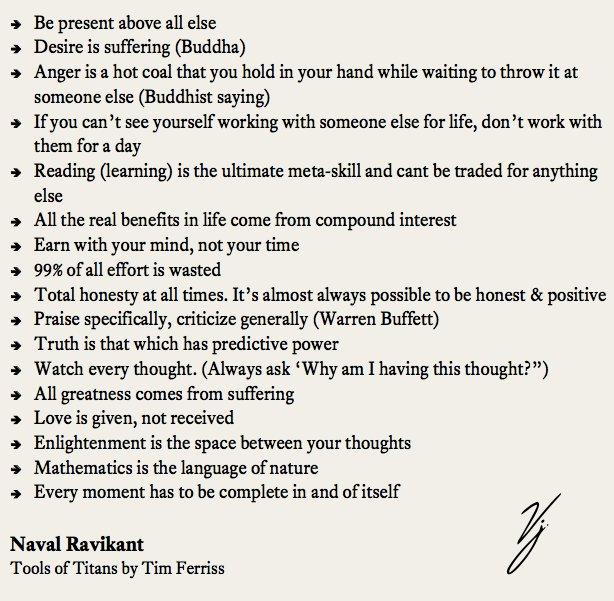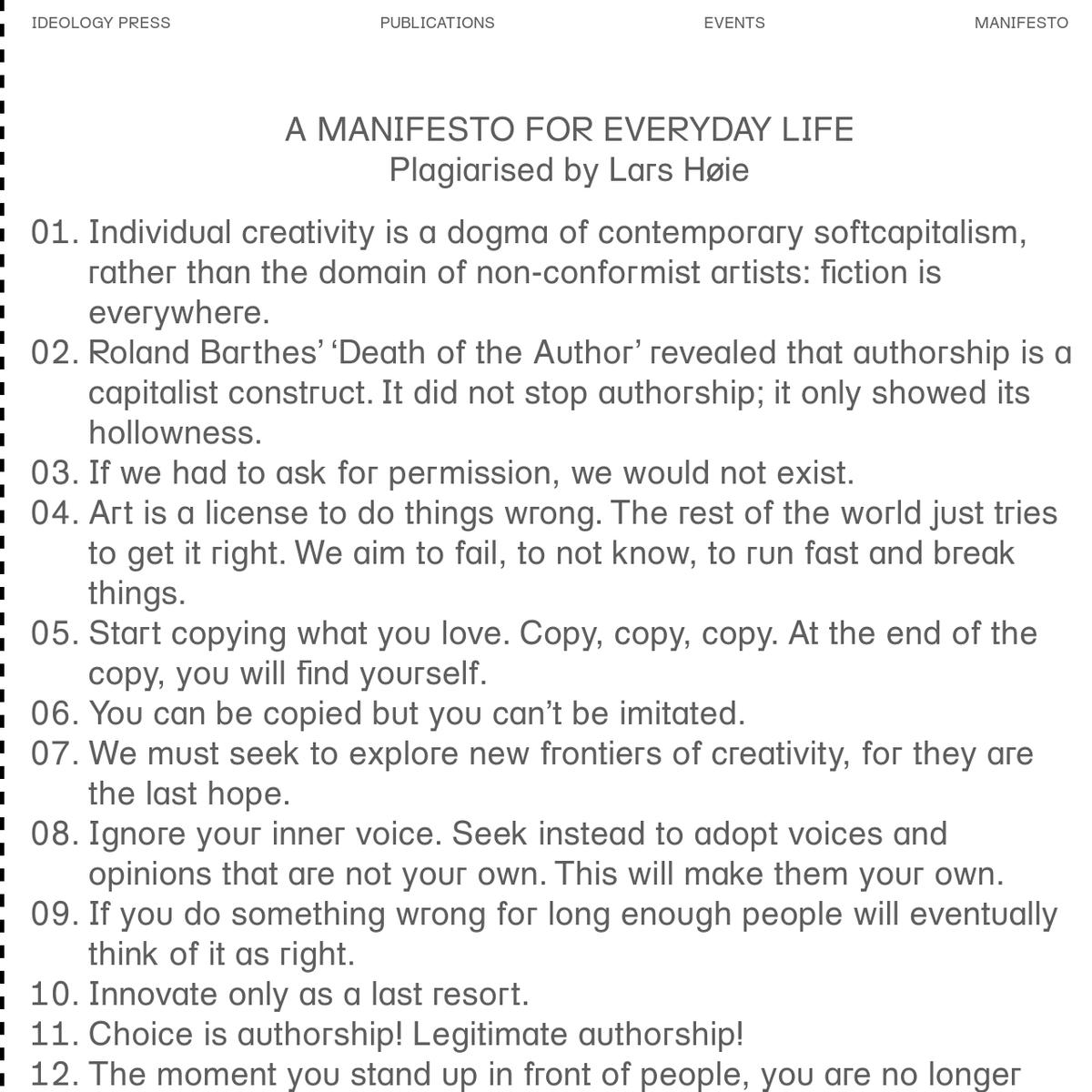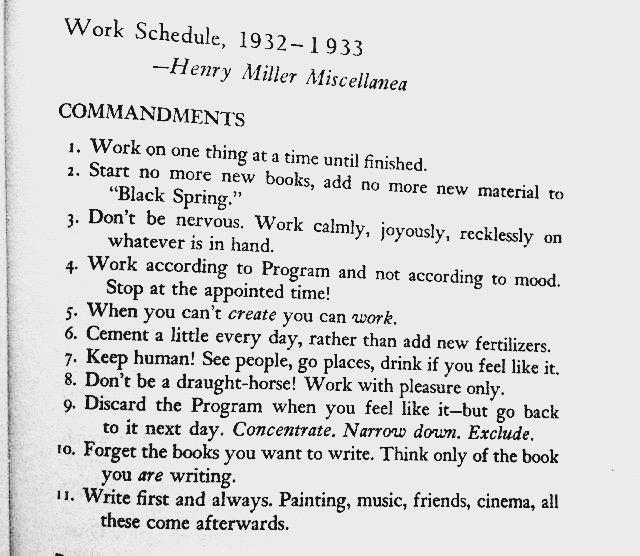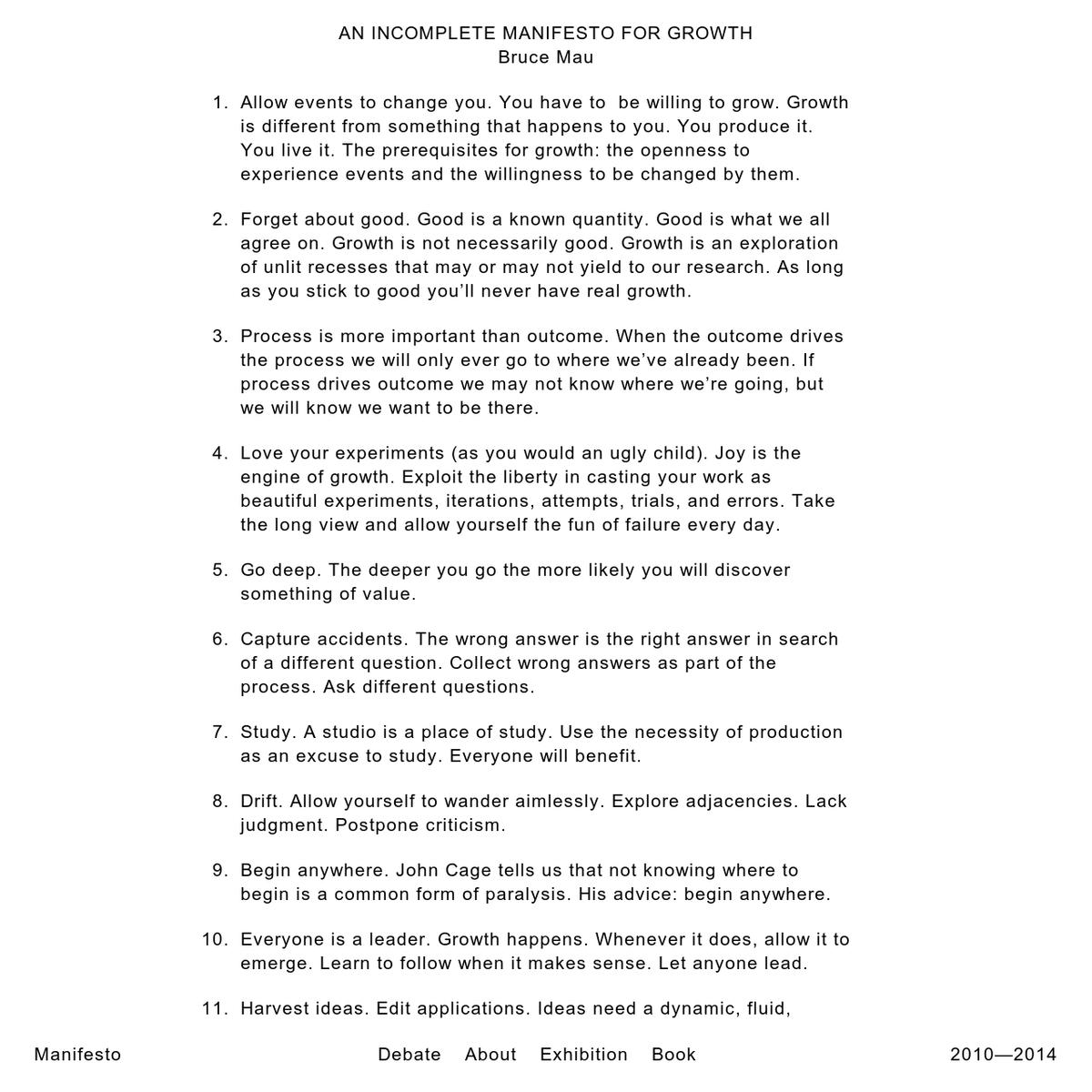Advice for myself


- DON’T SMOKE CIGARETTES.
- DRIVE OLD JAPANESE CARS. EASY AND CHEAP TO FIX & THEY RUN FOR FUCKING EVER.
- BUY MOST OF YOUR GROCERIES FROM THE PRODUCE SECTION. MOST OF THAT OTHER SHIT IS NOT ACTUALLY FOOD. YOU DON’T NEED IT.
- RIDE YOUR BIKE INSTEAD OF DRIVING AS MUCH AS YOU CAN. YOU NEED THE EXERCISE AND GAS IS EXPENSIVE.
- DON’T HAVE KIDS. THEY’RE NOT MIRACLES, THEY’RE PEOPLE. 7 BILLION IS TOO FUCKING MANY. FIND SOME OTHER WAY TO GIVE YOUR DULL EXISTENCE SOME MEANING. BTW THEY’RE EXPENSIVE.
- GET YOUR CLOTHES FROM THRIFT STORES. WITH THE PHYSIQUE YOU’LL HAVE FROM RIDING YOUR BIKE, YOU’LL LOOK HOT WEARING ANYTHING.
- LEARN TO FIX THINGS. TONS OF GREAT BOOKS AND YOUTUBE VIDS ON FIXING ANYTHING. OR ASK AN OLD DUDE. PEOPLE USED TO FIX THINGS. NO SHIT.
- LEARN A TRADE — CARPENTRY, PLUMBING, ELECTRICAL, AUTO MECHANICS, TAILORING, COMPUTER/ELECTRONICS REPAIR, SOMETHING THEY CAN’T FUCKING OUTSOURCE. NO ONE GIVES A SHIT ABOUT YOUR MASTERS IN DOSTOYEVSKY OR YOUR HIGH SCORE ON WORLD OF WARCRAFT…. FIX SOMETHING, DUMBASS, FIX SOMETHING!
- IF YOU LIKE BOOZE, DRINK AT HOME WITH YOUR NEIGHBORS. DRUNK DRIVING IS FOR ASSHOLES, RICH ONES WITH LAWYERS.
- DO PEOPLE FAVORS. IT’S CALLED COOPERATION. IT’S HOW THE WORLD WORKED BEFORE MONEY. THEY WILL RETURN THE FAVOR, OR SOMEONE WILL. NO SHIT. THIS REALLY WORKS.
- MAKE THINGS — LOOK AROUND YOU. WHAT DO YOU SEE? YAH, SHITTY STUFF MADE BY IMPOVERISHED ENSLAVED PEOPLE FAR AWAY. PICK ANYTHING. MAKE A BETTER ONE. PEOPLE WANT GOOD SHIT. YOU WON’T GET RICH, BUT YOU’LL GET BY.
- IF YOU LIVE IN AMERICA — DON’T GET SICK AND AVOID INJURY. WEAR YOUR FUCKING HELMET AND PUT LIGHTS ON YOUR BIKE.
- FIND WORK YOU LOVE. IF YOU CAN’T DO THAT, THEN FIND A JOB WHERE YOU LOVE THE PEOPLE.
- JUNKIES AND ADDICTS ARE LIKE TODDLERS. THEY JUST WANT TO SHIT ALL OVER YOU AND EVERYTHING. THE MESSES THEY MAKE CAN GET EXPENSIVE. AVOID THEM IF YOU CAN.
- DON’T BUY SHIT ON CREDIT, REMEMBER WHAT HAPPENED TO AMERICA? CASH ONLY, FUCKERS. CAN’T AFFORD IT? DON’T FUCKING BUY IT!
- PREVENTABLE EXPENSES — STD’S, ABORTIONS, DWI’S, LUNG CANCER, HEAD INJURIES, SPEEDING TICKETS, CIRRHOSIS OF THE LIVER.
- DON’T GO ON FANCY DATES IF YOU’RE NOT FANCY. MOST PEOPLE KIND OF DESPISE THE RICH ANYWAY.
- WHEN YOU GO SEE SHOWS, BRING A FLASK IN. THAT WAY YOU CAN AFFORD TO BUY A RECORD.
- IF YOU HAD TOLD ME 15 YEARS AGO THAT COCA COLA WOULD PUT TAP WATER IN PLASTIC BOTTLES AND MOTHERFUCKERS WOULD BUY IT …… NO FUCKIN WAY.
- DON’T GET CABLE. ASSHOLE. THERE IS NOTHING ON. I PROMISE. $100 A MONTH ? FUCK NO!
THIS LIST WAS EDITED BY STACEY YATES WITH CONTRIBUTIONS FROM JHEREK BISHOFF, CHAD RAINES & AMANDA PALMER. WE LIVE IN A WASTEFUL SOCIETY. LIVE WELL. IT DON’T TAKE MUCH. REALLY.
— THOR HARRIS
Wear the uniform
Think long term (like 30 years from now)
Build stories and languages, not things
Create your own universe (or join ours)
Collect samples
Be a sample for somebody else
Look for loyalty, not for a skill set
Do not build utilitarian products. However, use them as a medium to express yourself
Do not exploit introverts — doesn’t work long term. Learn to be an introvert yourself
Travel more
Do not work for corporations. Old corporations were meaningful when their founders were alive, but now, they have outlived their relevancy. They exist only to keep their numbers growing
New corporations are no better. They have scaled up features, and today’s founders want hyper-growth for growth’s sake (it seems like every line of code, every feature deserves its own corporation — it sure doesn’t)
So, fuck the corporations
Tell the truth (bullshit never works long term)
Study and research fashion
Your phone is a temporary feature — don’t spend your life on it (like you wouldn’t spend it on a fax machine)
Fuck likes, followers, fake lives, fake friends
Remake your environment. Build it for yourself, and people will come
Only trust those who make things you love
Move to LA
Don’t buy property
Don’t go to Mars (just yet)
Use only one font, just a few colors, and just a few shapes
Use spreadsheets, but only to map out 30 cells — one for each year of the rest of your life
The next three are the most important
The past doesn’t exist — don’t get stuck in it
Don’t go to Silicon Valley (it’s not for you if you’re still reading this)
Remind yourself daily: you and everyone you know will die
We must build the most beautiful things
We are 2046 kids
There are plenty of ways to enter a pool. The stairs is not one of them.
Never cancel dinner plans by text message.
Don’t knock it ’til you try it.
If a street performer makes you stop walking, you owe him a buck.
Always use ‘we’ when referring to your home team or your government.
When entrusted with a secret, keep it.
Don’t underestimate free throws in a game of ‘horse’.
Just because you can doesn’t mean you should.
Don’t dumb it down.
You only get one chance to notice a new haircut.
If you’re staying more than one night, unpack.
Never park in front of a bar.
Expect the seat in front of you to recline. Prepare accordingly.
Keep a picture of your first fish, first car, and first boy/girlfriend.
Hold your heroes to a high standard.
A suntan is earned, not bought.
Never lie to your doctor.
All guns are loaded.
Don’t mention sunburns. Believe me, they know.
The best way to show thanks is to wear it. Even if it’s only once.
Take a vacation of your cell phone, internet, and TV once a year.
Don’t fill up on bread, no matter how good.
A handshake beats an autograph.
Don’t linger in the doorway. In or out.
If you choose to go in drag, don’t sell yourself short.
If you want to know what makes you unique, sit for a caricature.
Never get your hair cut the day of a special event.
Be mindful of what comes between you and the Earth. Always buy good shoes, tires, and sheets.
Never eat lunch at your desk if you can avoid it.
When you’re with new friends, don’t just talk about old friends.
Eat lunch with the new kids.
When traveling, keep your wits about you.
It’s never too late for an apology.
Don’t pose with booze.
If you have the right of way, take it.
You don’t get to choose your own nickname.
When you marry someone, remember you marry their entire family.
Never push someone off a dock.
Under no circumstances should you ask a woman if she’s pregnant.
It’s not enough to be proud of your ancestry; live up to it.
Don’t make a scene.
When giving a thank you speech, short and sweet is best.
Know when to ignore the camera.
Never gloat.
Invest in good luggage.
Make time for your mom on your birthday. It’s her special day, too.
When opening presents, no one likes a good guesser.
Sympathy is a crutch, never fake a limp.
Give credit. Take blame.
Suck it up every now and again.
Never be the last one in the pool.
Don’t stare.
Address everyone that carries a firearm professionally.
Stand up to bullies. You’ll only have to do it once.
If you’ve made your point, stop talking.
Admit it when you’re wrong.
If you offer to help don’t quit until the job is done.
Look people in the eye when you thank them.
Thank the bus driver.
Never answer the phone at the dinner table.
Forgive yourself for your mistakes.
Know at least one good joke.
Don’t boo. Even the ref is somebody’s son.
Know how to cook one good meal.
Learn to drive a stick shift.
Be cool to younger kids. Reputations are built over a lifetime.
It’s okay to go to the movies by yourself.
Dance with your mother/father.
Don’t lose your cool. Especially at work.
Always thank the host.
If you don’t understand, ask before it’s too late.
Know the size of your boy/girlfriend’s clothes.
There is nothing wrong with a plain t-shirt.
Be a good listener. Don’t just wait for your turn to talk.
Keep your word.
In college, always sit in the front. You’ll stand out immediately.
Carry your mother’s bags. She carried you for nine months.
Be patient with airport security. They’re just doing their jobs.
Don’t be the talker in a movie.
The opposite sex likes people who shower.
You are what you do, not what you say.
Learn to change a tire.
Be kind. Everyone has a hard fight ahead of them.
An hour with grandparents is time well spent. Ask for advice when you need it.
Don’t litter.
If you have a sister, get to know her boyfriend. Your opinion is important.
You won’t always be the strongest or the fastest. But you can be the toughest.
Never call someone before 9am or after 9pm.
Buy the orange properties in Monopoly.
Make the little things count.
Always wear a bra at work.
There is a fine line between looking sultry and slutty. Find it.
You’re never too old to need your mom.
Ladies, if you make the decision to wear heels on the first date, commit to keeping them on and keeping your trap shut about how much your feet kill.
Know the words to your national anthem.
Your dance moves might not be the best, but I promise making a fool of yourself is more fun then sitting on the bench alone.
Smile at strangers.
Make goals.
Being old is not dictated by your bedtime.
If you have to fight, punch first and punch hard


“I watched the best minds of my generation destroyed by Tumblr, reblogging vintage pics of Kate Moss ad infinintum and dragging themselves through the godless streets of Instagram in blind pursuit of likes. While the world is facing some of the biggest crises in its history, the young, creative minds of the Western world are busy regramming scans of The Face and writing think pieces on the cultural significance of Winona Ryder in Mermaids. It has to stop. For your sake, if not just mine.”
10 Rules of Good Studying
Excerpted from A Mind for Numbers: How to Excel in Math and Science (Even if You Flunked Algebra), by Barbara Oakley, Penguin, July, 2014
Use recall. After you read a page, look away and recall the main ideas. Highlight very little, and never highlight anything you haven’t put in your mind first by recalling. Try recalling main ideas when you are walking to class or in a different room from where you originally learned it. An ability to recall—to generate the ideas from inside yourself—is one of the key indicators of good learning.
Test yourself. On everything. All the time. Flash cards are your friend.
Chunk your problems. Chunking is understanding and practicing with a problem solution so that it can all come to mind in a flash. After you solve a problem, rehearse it. Make sure you can solve it cold—every step. Pretend it’s a song and learn to play it over and over again in your mind, so the information combines into one smooth chunk you can pull up whenever you want.
Space your repetition. Spread out your learning in any subject a little every day, just like an athlete. Your brain is like a muscle—it can handle only a limited amount of exercise on one subject at a time.
Alternate different problem-solving techniques during your practice. Never practice too long at any one session using only one problem-solving technique—after a while, you are just mimicking what you did on the previous problem. Mix it up and work on different types of problems. This teaches you both how and when to use a technique. (Books generally are not set up this way, so you’ll need to do this on your own.) After every assignment and test, go over your errors, make sure you understand why you made them, and then rework your solutions. To study most effectively, handwrite (don’t type) a problem on one side of a flash card and the solution on the other. (Handwriting builds stronger neural structures in memory than typing.) You might also photograph the card if you want to load it into a study app on your smartphone. Quiz yourself randomly on different types of problems. Another way to do this is to randomly flip through your book, pick out a problem, and see whether you can solve it cold.
Take breaks. It is common to be unable to solve problems or figure out concepts in math or science the first time you encounter them. This is why a little study every day is much better than a lot of studying all at once. When you get frustrated with a math or science problem, take a break so that another part of your mind can take over and work in the background.
Use explanatory questioning and simple analogies. Whenever you are struggling with a concept, think to yourself, How can I explain this so that a ten-year-old could understand it? Using an analogy really helps, like saying that the flow of electricity is like the flow of water. Don’t just think your explanation—say it out loud or put it in writing. The additional effort of speaking and writing allows you to more deeply encode (that is, convert into neural memory structures) what you are learning.
Focus. Turn off all interrupting beeps and alarms on your phone and computer, and then turn on a timer for twenty-five minutes. Focus intently for those twenty-five minutes and try to work as diligently as you can. After the timer goes off, give yourself a small, fun reward. A few of these sessions in a day can really move your studies forward. Try to set up times and places where studying—not glancing at your computer or phone—is just something you naturally do.
Eat your frogs first. Do the hardest thing earliest in the day, when you are fresh.
Make a mental contrast. Imagine where you’ve come from and contrast that with the dream of where your studies will take you. Post a picture or words in your workspace to remind you of your dream. Look at that when you find your motivation lagging. This work will pay off both for you and those you love!
Ten Rules of Bad Studying
Excerpted from A Mind for Numbers: How to Excel in Math and Science (Even if You Flunked Algebra), by Barbara Oakley, Penguin, July, 2014
Avoid these techniques—they can waste your time even while they fool you into thinking you’re learning!
Passive rereading—sitting passively and running your eyes back over a page. Unless you can prove that the material is moving into your brain by recalling the main ideas without looking at the page, rereading is a waste of time.
Letting highlights overwhelm you. Highlighting your text can fool your mind into thinking you are putting something in your brain, when all you’re really doing is moving your hand. A little highlighting here and there is okay—sometimes it can be helpful in flagging important points. But if you are using highlighting as a memory tool, make sure that what you mark is also going into your brain.
Merely glancing at a problem’s solution and thinking you know how to do it. This is one of the worst errors students make while studying. You need to be able to solve a problem step-by-step, without looking at the solution.
Waiting until the last minute to study. Would you cram at the last minute if you were practicing for a track meet? Your brain is like a muscle—it can handle only a limited amount of exercise on one subject at a time.
Repeatedly solving problems of the same type that you already know how to solve. If you just sit around solving similar problems during your practice, you’re not actually preparing for a test—it’s like preparing for a big basketball game by just practicing your dribbling.
Letting study sessions with friends turn into chat sessions. Checking your problem solving with friends, and quizzing one another on what you know, can make learning more enjoyable, expose flaws in your thinking, and deepen your learning. But if your joint study sessions turn to fun before the work is done, you’re wasting your time and should find another study group.
Neglecting to read the textbook before you start working problems. Would you dive into a pool before you knew how to swim? The textbook is your swimming instructor—it guides you toward the answers. You will flounder and waste your time if you don’t bother to read it. Before you begin to read, however, take a quick glance over the chapter or section to get a sense of what it’s about.
Not checking with your instructors or classmates to clear up points of confusion. Professors are used to lost students coming in for guidance—it’s our job to help you. The students we worry about are the ones who don’t come in. Don’t be one of those students.
Thinking you can learn deeply when you are being constantly distracted. Every tiny pull toward an instant message or conversation means you have less brain power to devote to learning. Every tug of interrupted attention pulls out tiny neural roots before they can grow.
Not getting enough sleep. Your brain pieces together problem-solving techniques when you sleep, and it also practices and repeats whatever you put in mind before you go to sleep. Prolonged fatigue allows toxins to build up in the brain that disrupt the neural connections you need to think quickly and well. If you don’t get a good sleep before a test, NOTHING ELSE YOU HAVE DONE WILL MATTER.